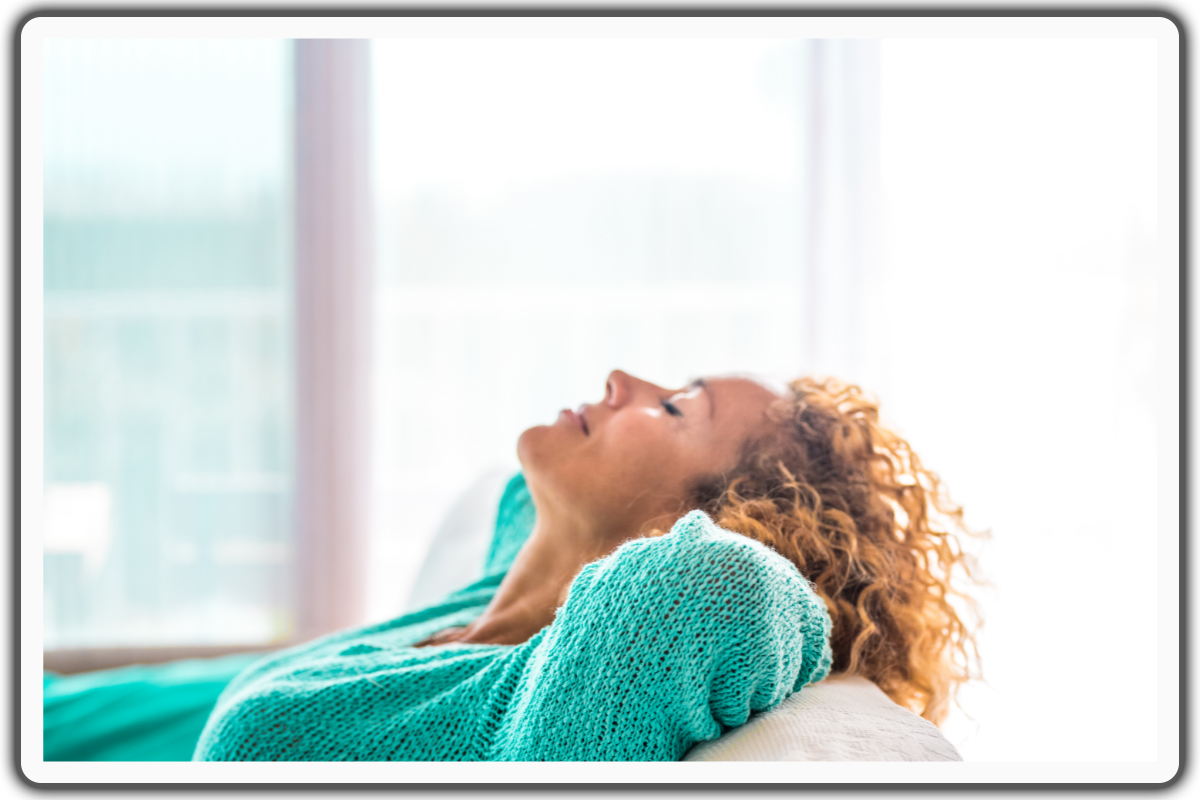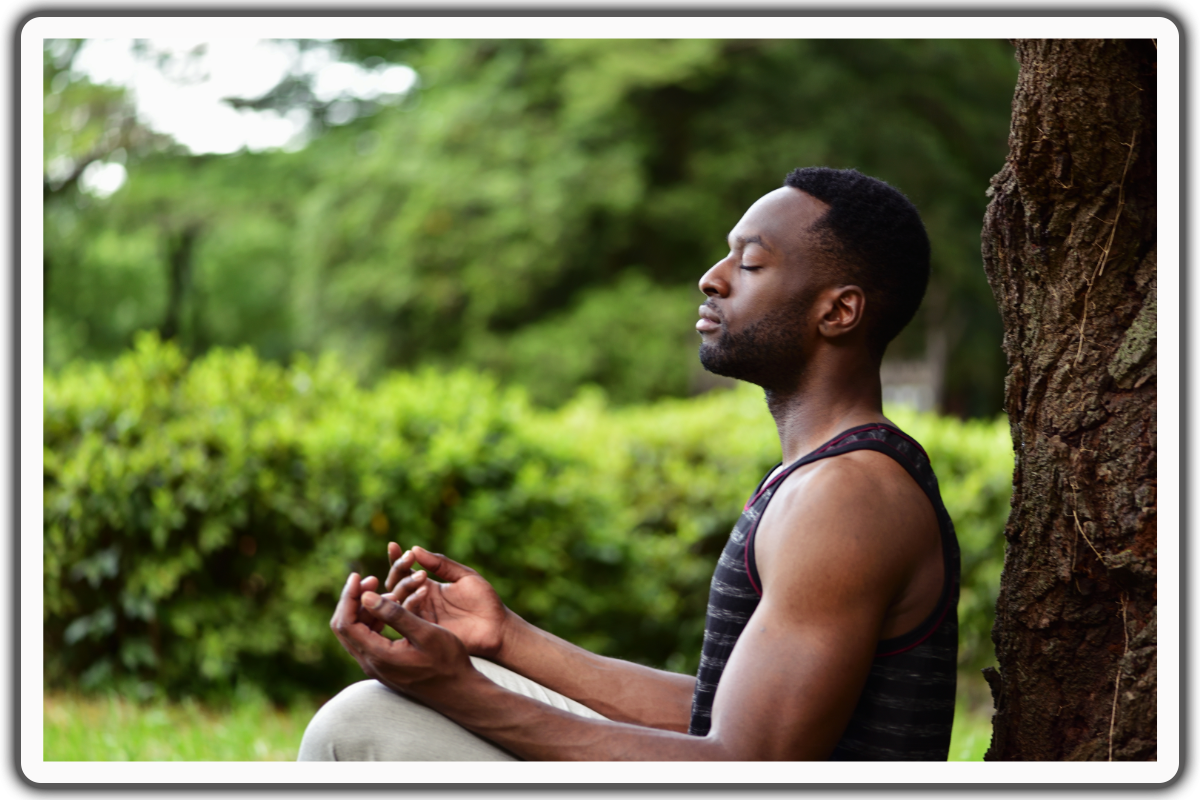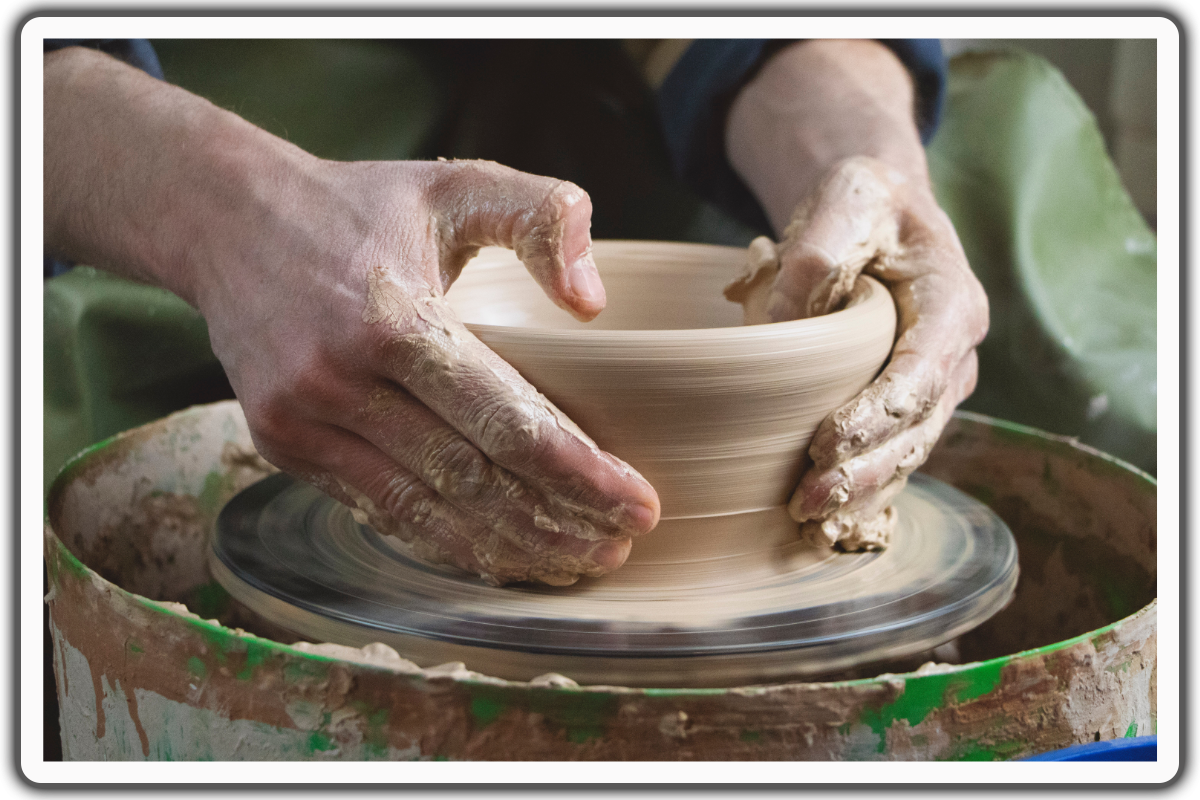Rejuvenate Your Mind and Body: 10 Ways to Relax Healthily

The World Health Organization has termed stress the health epidemic of the 21st century. Stress significantly impacts our lives. We remain perpetually connected to work, facing unprecedented stress and anxiety levels. Finding healthy ways to unwind and rejuvenate both mind and body is crucial.
Acknowledging the capacity of stress to induce depression and physical ailments underscores the importance of engaging in relaxation techniques. We offer practical tips for relaxation, such as enjoying herbal tea in a cozy spot, alongside other effective methods to reduce stress and restore vitality. Embrace these tips to maintain overall well-being in today's hectic world.
The Importance of Relaxation and Self-Care
In today's fast-paced world, relaxation and self-care [¹] are often neglected as we strive to meet deadlines and manage daily responsibilities. Neglecting self-care can significantly impact our physical and mental health, making relaxation a luxury and a necessity for a balanced life.
Moreover, engaging in relaxation allows our bodies and minds to rest and recuperate, recharging our energy, reducing stress, and improving mood. Additionally, taking time for ourselves boosts productivity, creativity, and focus, enhancing our performance across life's arenas. It's essential to prioritize unwinding and treat self-care as a crucial part of our routine.
The Science Behind Relaxation
Relaxation isn't just about feeling calm; it's about the physiological response in your body that counters the stress response. Activities that promote relaxation activate your body's parasympathetic nervous system—the rest and digest system—which helps to slow heart rate, lower blood pressure, and promote deep breathing. Consistent use of relaxation methods can result in lasting health advantages, including a decreased likelihood of heart disease and enhanced mental health.
Understanding the Mind-Body Connection
Before exploring ways to unwind, it's crucial to understand the mind-body connection [³]. Our thoughts, emotions, and physical pain sensations are interconnected, influencing each other significantly. Stress triggers the release of hormones that cause muscle tension, a faster heart rate, and shallow breathing. Conversely, relaxation techniques [²] can reverse these effects, fostering calm and balance.
By relaxing our bodies, we signal our minds to release stress, activating the parasympathetic nervous system—our body's mechanism for rest and recovery. This activation slows our heart rate, deepens breathing, and relaxes muscles, clearing our minds and enhancing our sense of tranquility and well-being. Embracing relaxation techniques leverages this connection, promoting health and vitality.
Key Benefits of Relaxing Your Mind and Body
1. Improved Cognitive Function
Detail: Relaxation techniques such as deep breathing exercises, meditation, and mindfulness can enhance concentration, sharpen memory, and boost problem-solving abilities.
Impact: Better mental performance in daily tasks and improved productivity.
2. Enhanced Emotional Resilience
Detail: Regular relaxation helps regulate emotions, leading to increased patience and better stress management.
Impact: Greater ability to handle daily challenges without becoming overwhelmed, leading to a more balanced emotional state.
3. Boosted Physical Health
Detail: Relaxation reduces stress hormones in the body, which decreases the risk of chronic diseases such as hypertension and heart disorders.
Impact: Strengthened immune system and improved overall physical well-being.
4. Mental Recovery and Rejuvenation
Detail: Giving the brain a break from daily stressors allows it to repair and grow new neural connections.
Impact: Enhanced creativity and decision-making skills, as the mind is clearer and more equipped to tackle complex problems.
5. Physical Healing and Strengthening
Detail: During relaxation, the body enters a state of repair where it can better heal and fortify tissues and muscles.
Impact: Reduced physical fatigue and pains, leading to increased energy levels and better endurance.
10 Healthy Ways to Relax
Discover 10 healthy ways to unwind and restore balance in your life. From practicing yoga and meditation to enjoying nature walks and soothing baths, these effective techniques help to manage stress, enhance overall well-being, and improve mood. They are perfect for anyone looking to relieve tension and foster a sense of calm in today's fast-paced world.
1. Take a Walk

Manage stress by taking a nice, long walk. Allow yourself to wander without a specific destination in mind. Embark on your walk and determine your path as you proceed. Explore unfamiliar streets in the vicinity of your home or workplace. Take in your surroundings and savor your leisurely walk.
How walking helps you unwind?
Walking will improve your mood and reduce your physiological and psychological stress levels. While you walk, your body releases endorphins. Endorphins are special neurotransmitters in the brain that send signals throughout the nervous system. Dr. Melissa Stroppler, MD, says, “With high endorphin levels, we feel less pain and fewer negative effects of stress.”
2. Play Cards

Grab a friend or a neighbor and start shuffling the deck. Playing a game of cards is an excellent way to unwind. You’ll be focused on the game and light conversation instead of the pressures of life and work. A simple solitaire game can also help you relax if you're alone.
How playing cards help you unwind?
The folks at Bicycle brand playing cards say that one of the best benefits of playing cards is that it reduces stress. A Bicycle representative told us, “Playing cards is a great activity that allows people to talk to each other face to face.
Moreover, it can take your mind off other worries of life.” He added, “Playing cards makes the brain think in different ways. There are hundreds of games from which to choose. They can be as easy or as difficult as you like.”
3. Play an Instrument or Learn to Play One

Recently, I purchased a used electric piano and learned to play simple chords by watching free instructional videos online. Now, I can play and sing a few of my favorite songs. Nothing more can relieve stress than sitting at the piano bench and playing music. When I’ve had a long day, I spend a few blissful minutes tickling the ivories to unwind before bed.
Moreover, if you already play an instrument, pick it up and make music. If you want to learn to play, search online for video tutorials or sign up for lessons with an actual teacher.
How making music helps you unwind.
Susan Kuchinskas at WebMD says, “Researchers now know that playing a musical instrument can switch off the stress response, improving physical and emotional health. When our senses detect a possible environmental threat, the body undergoes a chain reaction in which genes within each cell switch on, directing the cells to produce chemicals associated with the stress response.
Playing music sets off an opposite chain reaction that switches these genes off again.”
4. Read a Book

If you can’t remember the last time you read a physical book from cover to cover, it’s time to head to the library and find something you can enjoy. Additionally, if you like fiction, check to see if they have anything new in your favorite genre. If you’d rather read biographies, check one out and get started.
How reading helps you unwind?
In 2009, the University of Sussex in England published a study that found that reading a book, even for only six minutes, reduces stress levels by 68 percent.
The study also found that reading was more effective for stress relief than drinking hot tea, playing video games, or listening to music. We like that storyline.
5. Sketch

For some people, Drawing is an excellent way to unwind. Try taking your sketchbook out in the yard and drawing things you see around you. You can also draw a scene from a photograph while you sit at your desk.
How sketching helps you unwind?
Creating art helps us slow down and relax. It shifts our focus away from the struggles of life. Anne Willieme, the director of ArtMed Insight, says, “Drawing, for instance, can help us connect with our sense of sight, slowing down our seeing and making it more embodied.
Additionally, sketching a peach, we can take note of the fuzzy texture of its skin, the subtle shades of pink and orange, and the late afternoon light tinting it. As we do so, we can become more fully present in the moment.”
6. Meditate

Meditation is a wonderful and enlightening way to let go of all the pressure and expectations you face daily. Turn off your phone and spend 20 minutes in meditation. Enjoy the tranquility and mindfulness of the practice.
How meditation helps you unwind?
Meditation can help you unwind in various ways. One particularly helpful way is that it helps you process stress better. Psychologist and meditation practitioner Maria Camara says, “We begin by creating space in our minds to reduce demands by discerning what is essential. We train our minds and increase our mental resources. Then, when stressful situations arise, our training will provide us with the skills to work with our emotions. We can deal with stress more peacefully. Mindfulness meditation practice is the ideal tool for stress management.”
7. Work on a Hobby

Remember hobbies? They’re those fun and interesting activities that you used to work on before you got so busy. Please pick up your crochet hook or half-built model car and begin tinkering again. If you don’t have any hobbies, poke around a hobby and craft store to find something that piques your interest.
How working on hobbies helps you unwind?
Hobbies help lower our heart rates and make us happier. A 2015 study published in the Annals of Behavioral Medicine followed 100 adult participants as they engaged in their normal daily lives. The study participants reported their activities and their feelings. They also wore heart rate monitors.
Moreover, after the three-day study, researchers found that the people who engaged in hobbies had a 34 percent reduction in stress levels, and they experienced sadness less often than the participants who didn’t engage in hobbies. They had lower heart rates as well. It didn’t matter what the hobby was ― only the participants truly enjoyed it.
8. Spend Time With Your Pet

Whether you have a dog to walk, a cat to cuddle, or a tank of fish to watch swim, take a full 20 minutes to engage with your pet. If you don’t have a pet, take your neighbor’s dog for a walk or spend time with the animals at your local shelter
How being with pets helps you unwind?
Research has shown that petting a dog or cat reduces blood pressure and heart rate. Studies have also found that watching fish swim in an aquarium relieves stress. Positive interaction with any pet benefits the mind and body in many wonderful ways.
9. Ride a Bike

If you don’t have a bike, borrow one from a friend and enjoy the wind in your face as you ride around your neighborhood. A few minutes on a bicycle will make you feel like a kid again.
How riding a bike helps you unwind?
Just as a long walk or any exercise causes the body to release endorphins, bike riding does the same thing. Those feel-good endorphins bring natural stress relief and a sense of euphoria.
10. Take a Hot Bath

Let your stress melt away as you soak in a hot bath. For even more relaxation, add some lavender essential oils to the water.
How taking a bath helps you unwind?
Aside from the wonderful feeling of soaking in a hot tub, bathing can cause us to breathe more deeply. Cindy Lamothe at Healthline says, “A warm bath can also improve breathing. The temperature of the water and pressure on your chest increases your lung capacity and oxygen intake.”
The Benefits of a Digital Detox
In today's digital age, we are constantly bombarded with information, notifications, and the pressure to be available 24/7. While technology has undoubtedly made our lives more convenient, it can also contribute to stress, overwhelm, and a constant state of busyness. Taking a break from screens and disconnecting from the digital world, such as trying a digital detox for better sleep, can benefit our mental and emotional well-being. Here's why a digital detox for better sleep is essential for unwinding:
1. Reduced Stress: Prolonged exposure to screens and digital stimulation can increase stress levels and hinder our ability to relax. Stepping away from technology grants our minds a valuable opportunity to rest, reduce mental clutter, and promote a sense of calm. Engaging in a digital detox for better sleep helps to alleviate stress and fosters a more relaxed state of mind.
2. Improved Sleep Quality: Screens emit blue light that can disrupt our circadian rhythm, resulting in increased difficulty in falling asleep and a decline in sleep quality. Disrupting from technology in the evenings creates a conducive environment for restful sleep and better sleep quality. A digital detox for better sleep helps to minimize exposure to blue light, promoting a more natural sleep-wake cycle.
3. Increased Productivity: Paradoxically, excessive screen time can decrease productivity and focus. Regular breaks from technology can recharge our minds, improve concentration, and enhance our ability to tackle tasks efficiently.
Set boundaries around screen time to incorporate a digital detox for better sleep into your routine. Set aside particular times throughout the day to unplug from your devices and participate in activities that bring you joy and relaxation.
Whether reading a book, spending time in nature, or engaging in a hobby, allow yourself to immerse in the present moment without distractions. Remember, it's about finding balance and using technology mindfully rather than letting it control your life.
Recognizing the Need to Unwind: 10 Signs It's Time to Consult a Mental Health Professional
Recognizing the signs you need to relax is crucial for maintaining mental and physical health.
1. Persistent Fatigue:
Feeling constantly tired despite getting deep sleep can indicate high stress levels. Stepping away from technology and engaging in a digital detox for better sleep grants our minds a valuable opportunity to rest, reduce mental clutter, and promote a sense of calm.
2. Increased Irritability or Moodiness:
If you find yourself easily annoyed, frustrated, or more emotional than usual, it could be a sign that stress is affecting your emotional balance.
3. Difficulty Sleeping
To improve your sleep, consider trying a digital detox for better sleep. Trouble falling or staying asleep and experiencing restless nights are often linked to stress.
4. Headaches and Muscle Tension:
Frequent headaches and muscle stiffness or pain, especially in the neck and shoulders, can be physical manifestations of stress.
5. Changes in Appetite:
Significant changes in eating habits, whether too much or too little, can also indicate the need to relax.
6. Lack of Concentration:
Difficulty focusing or remembering tasks and details may be caused by excessive mental stress.
7. Decreased Immunity:
If you get sick more often, it might be due to a weakened immune system, a common side effect of stress.
Feeling overwhelmed, constant worry, or experiencing feelings of hopelessness can be signs that stress is impacting your mental health.
9. Reliance on Substances:
Increasing dependence on substances like alcohol, caffeine, or even medications to manage your day can indicate underlying stress.
10. Withdrawal from Social Activities:
Avoiding social interactions and activities that you usually enjoy can be a sign of burnout and stress.
Before addressing these symptoms, it is important to seek guidance from a mental health professional. They can properly assess and guide you toward effective strategies tailored to your needs. Recognizing these signs early and seeking professional advice are crucial to improving your quality of life and restoring balance.
Unwind Healthily
The pressures of life often lead us to seek unhealthy ways to blow off stress. Overeating, yelling at our loved ones, binge drinking, and escaping into social media are options that may feel good for the moment but will never provide us with a truly healthy way to unwind. Consider trying a digital detox for better sleep to reduce stress and improve your overall well-being.
The 10 healthy ways to unwind we’ve suggested here, including a digital detox for better sleep will reduce stress and bring you peace and healthy for your body, mind, and soul. The next time you feel like you’re about to explode from the stresses of life or whenever you know you need to relax, try one of these healthy activities and unwind.
References
https://www.snhu.edu/about-us/newsroom/health/what-is-self-care#:~:text=Enhanced%20mental%20and%20emotional%20well,that%20bring%20joy%20and%20fulfillment
https://www.nccih.nih.gov/health/relaxation-techniques-what-you-need-to-know
https://www.webmd.com/fitness-exercise/video/rippe-mind-body-connection
